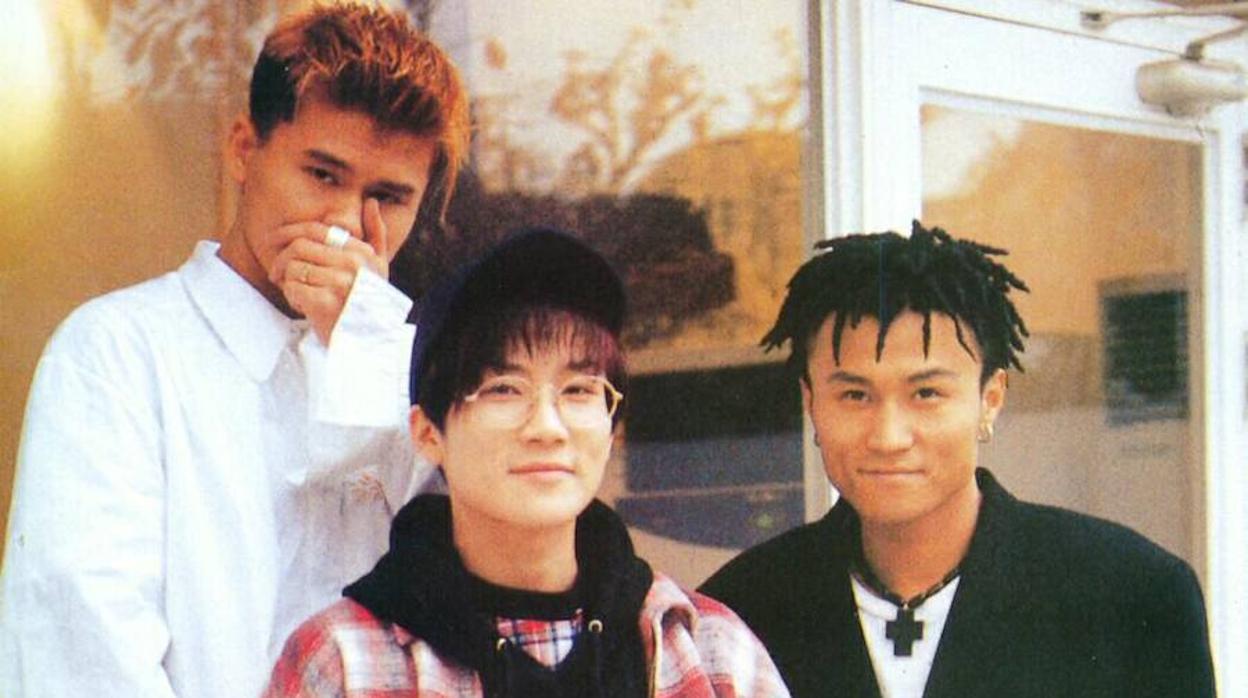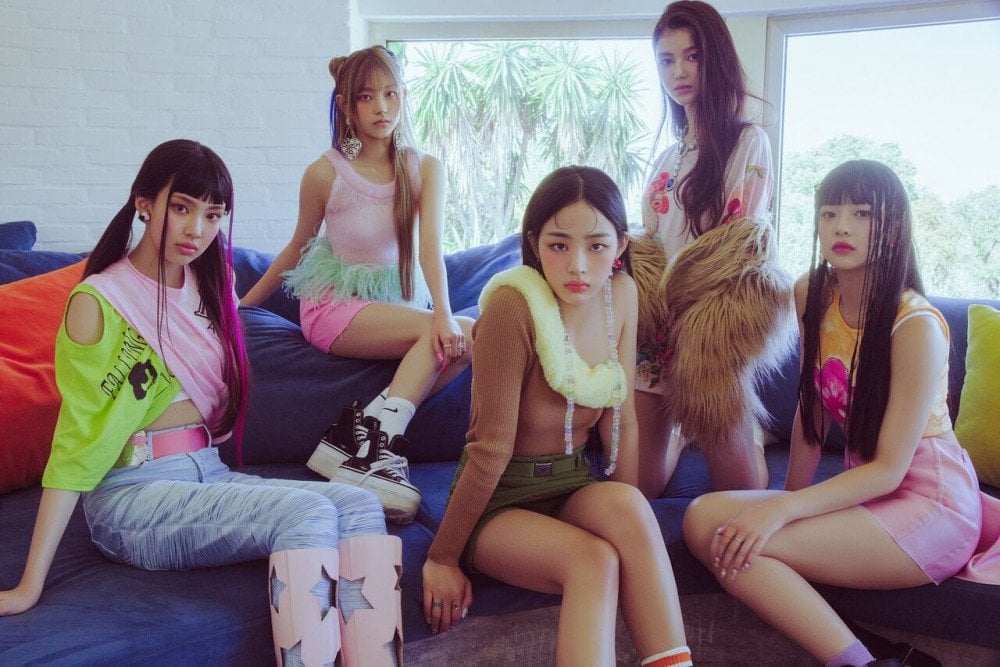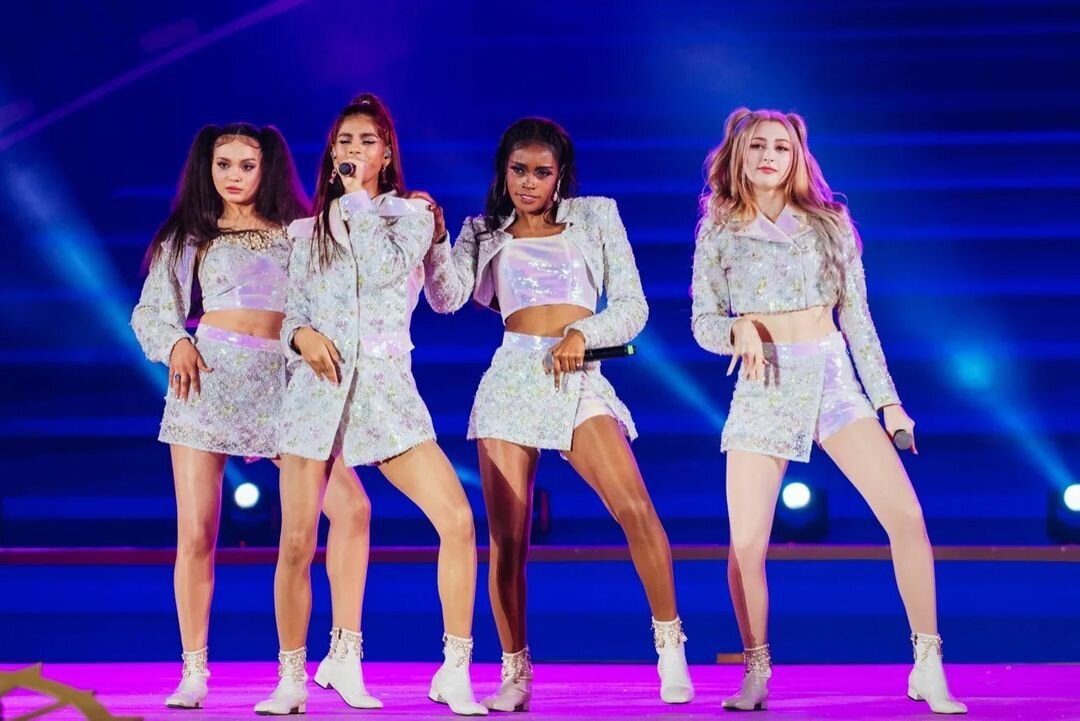K-pop – the music reigning from South Korea taking the world by storm, coined as the epitome of South Korean culture, but what of the other culture by which it is heavily inspired by? K-pop sounds, choreography, hair, fashion, music videos have been heavily influenced by Black culture and Black people.
The birth of K-pop
K-pop as we know it today was understood to have been kickstarted by early 90’s boy group Seo Taiji and Boys. Composed of three members, the group was heavily influenced by rap, hip-hop and R&B and used these genres as the groundwork for the K-pop scene – also known as the Hallyu wave – to build. The group’s music was not the only thing inspired by Blackness as their look was heavily influenced also. Members culturally appropriating locs, donning sagging pants and gold chains in their music videos became their usual. As more groups rose to the scene, more instances of Black culture were being found. After their disbandment, member Yang Hyun Suk founded YG Entertainment which became one of the ‘Big Three’ of K-pop companies. YG Entertainment is home to notorious groups such as Blackpink, Big Bang and 2NE1.

Wave of K-Hip Hop
With the wide popularity of K-pop, it had begun to branch off into sectors focusing on specific genres. Therefore K-Hip-hop, K-R&B, and most recently the sub-genre K-Drill became popular. Particularly, K-Drill gained attention after a clip from the music video Swoosh Flow by Korean rapper Changmo went viral on Twitter – specifically Black Twitter – and TikTok. Many were intrigued by the familiar genre – originating in Chicago and popularised in the UK – being performed in a different language to English. The music video for Swoosh Flow is very similar to other music videos from the same genre, quite obviously taking inspiration from music videos such as the late Pop Smoke’s Dior and Welcome to the Party.
Another Korean rapper Shin had stated in an interview with CNN that he studied MLE British pronunciation to be able to sound more authentic in his drill music. MLE, also known as Multicultural London English, is a sociolect of English, derived from a wide variety of ethnic backgrounds and dialects such as Jamaican Patois, African dialects, Arabic, Punjab, etc. This sociolect is mainly spoken and popularised by Black and ethnic minority youth in London.
The incorporation of Black culture in the Kpop music genre has resulted a large population of Black Kpop fans, many of whom feel mixed opinions of the heavy influences Kpop has built its’ industry from. Although inspiration is the norm as many other genres of music has also derived from Black people, sometimes the ‘inspiration’ can become exploitative.
Show Me The Money
Show Me The Money is a South-Korean rap competition show – aired on Mnet – where hopeful Korean underground rappers battle it out to become the best rapper and win a prize. The show has aired 11 seasons in total with popular names joining and winning such as Bobby from Kpop group IKON, rapper BeWhy, Loco and Lee Youngji. Show Me The Money has been widely criticised for its use of Black culture and mannerisms. In the show, it is not unlikely to see contestants in cornrows, locs or attempting to mimic Blackness. Watching the show raises eyebrows to how Blackness is seen in the eyes of not only the contestants, but the judges and even the producers. Aggressiveness and ‘swag’ are revered to high importance and respect and rather than being a show focused on musical talent, it comes across as a battle for who can act the most ‘Black’.
One fan took to Twitter to talk about how they feel regarding the competition show.
smtm is just some korean guy with cornrows and grills talking over a beat about their “swag” and then the judges talk about how much they embody hip hop for 10 mins
— covid baby (no balls) (@kaitholomew) October 15, 2022
Black choreography and K-pop
One example of the use of Black artistry and influence within K-pop is through choreography. World-renowned group BTS incorporated the Gwara Gwara dance – originally from South Africa – into their choreography for their hit song Idol. This prompted a wave of Black dance moves being incorporated into K-pop choreography.
A very recent use of Black-created dance was through NewJeans’ hit song OMG. Eager eyed fans caught on to a particular dance move in the chorus choreography which was taken from TLC’s music video for Creep. New Jeans debuted in 2022, and are known for their Y2K-esque visuals and sound, a subgenre created by Black people in the early 2000s.

Well-known K-pop artists JYP and Rain were the target of criticism after their collaboration release Switch on Me, where viewers noticed the eerily similar sound and dance moves previously seen in the music video for Bobby Brown’s Every Little Step. The similarities sparked a conversation of plagiarism and cultural theft and both artists issued an apology for the obvious similarities. This raised eyebrows to fans as JYP, also known as Park Jin-young, had previously stated in an interview that his music is inspired by the Motown scene. Therefore many wondered why he wouldn’t give credit to the Black artists this time around.
Are there any Black K-pop idols?
Although the clear influence of Black culture is present this is not reflected in K-pop groups. There is currently only one active Black K-pop idol in the industry, Fatou – hailing from Senegal – from girl group BLACKSWAN. The group BLACKSWAN had rebranded in 2020 from BP Rania, which had K-pop’s first Black idol, Alex Reid. BP Rania had disbanded in 2020 and BLACKSWAN made their redebut. Fatou’s announcement as a member gained wide attention and sparked debates if non-Asian people should be allowed to be K-pop idols. Some argued the topic of cultural appropriation and believed it would be wrong to infiltrate an industry created to amplify Asian presence in the music industry, and many stating K-pop’s constant use – and sometimes abuse – of Black culture as an example to why Black people should be gained entry into the K-pop industry as artists.
Since her announcement as a member of BLACKSWAN, DR Entertainment – the group’s company – announced they would be recruiting new international members. However, Fatou continues to be the only active Black Kpop idol.

The relationship between K-pop and Black culture has and will always be strong and Blackness continues to influence and shape the genre as it has since the early 90s. As the K-pop industry moves into its’ fifth generation of groups, it is immensely important that the true history of how K-pop came to be is understood and respected.